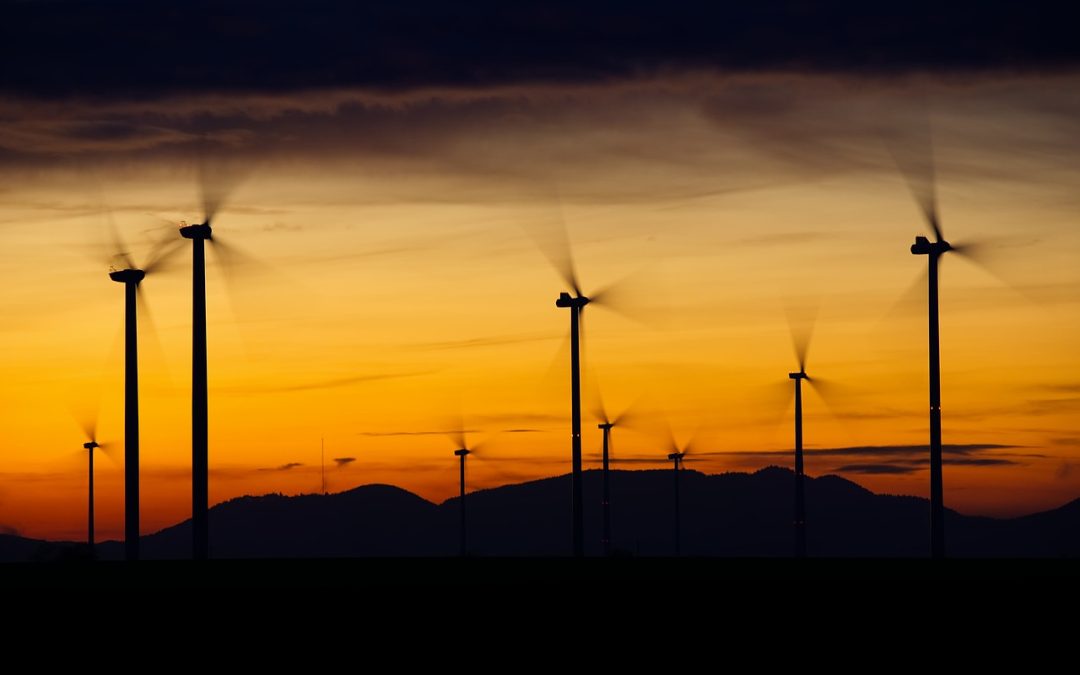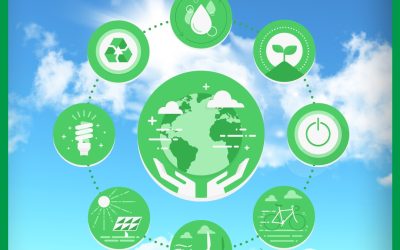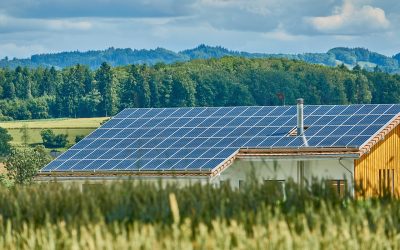Did you know that there is a way to generate power without using large amounts of water? In today’s article, we will explore how reduced water usage plays a significant role in the new era of power generation. Traditional power generation methods consume vast quantities of water for cooling and steam generation, leading to significant water scarcity and environmental concerns. However, advancements in technology and a shifting focus towards sustainable practices have paved the way for innovative power generation solutions that minimize water consumption. Join us as we uncover the benefits and potential of reduced water usage in this new wave of energy production.
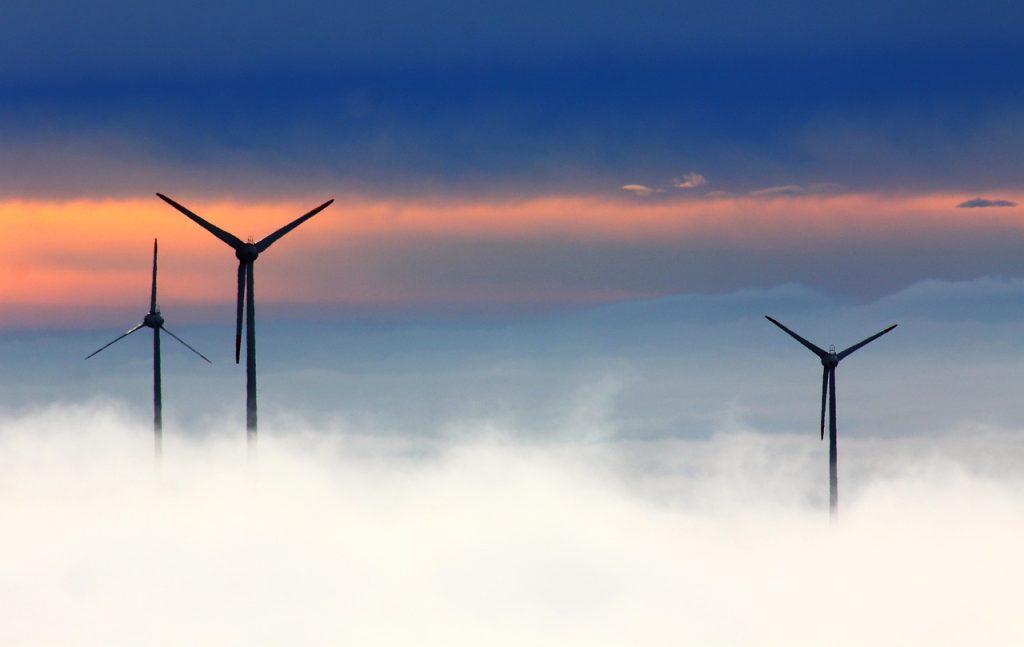
Overview of Traditional Power Generation
Traditional power generation refers to the production of electricity using conventional methods such as coal-fired power plants, natural gas plants, and nuclear power plants. These methods have been widely used for decades and have significantly contributed to meeting the world’s energy demands. However, traditional power generation processes often require substantial amounts of water for cooling and steam production, leading to the depletion of water resources and negative environmental impacts.
Types of Traditional Power Generation
There are several types of traditional power generation methods that rely on water for various purposes. Coal-fired power plants, for example, use vast amounts of water to cool their steam cycle systems and remove pollutants from the flue gases. Natural gas power plants also require water for cooling purposes, particularly in combined-cycle systems. Nuclear power plants, on the other hand, utilize significant amounts of water for cooling the reactors and fuel pools.
Water Usage in Traditional Power Generation
Water is an essential component in traditional power generation, primarily for cooling purposes. In coal-fired power plants, enormous quantities of water are used in the cooling towers to condense the steam after it has passed through the turbines. In natural gas power plants, water is used in the steam generation process by heating it through recovered waste heat before injecting it back into the combustion turbine. Nuclear power plants utilize water for cooling the reactor core and maintaining a safe temperature for the fuel rods.
Impact of Water Usage on the Environment
The extensive water usage in traditional power generation has significant environmental implications. The withdrawal of large quantities of water from natural water sources can deplete local ecosystems, harm aquatic species, and disrupt habitat, leading to the loss of biodiversity. Furthermore, the discharge of heated water back into rivers and lakes can negatively impact aquatic life and alter the temperature of the water bodies, affecting their overall ecological balance. The pollution and chemical contamination associated with traditional power generation can further exacerbate these environmental impacts.
Importance of Water Conservation in Power Generation
With growing concerns over water scarcity and the need for a more sustainable future, the role of water conservation in the power generation sector has become increasingly vital. By reducing water usage and implementing water conservation measures in power generation, we can mitigate the negative environmental impacts and promote the efficient and sustainable use of water resources.
Growing Concern for Water Scarcity
Water scarcity is a pressing global issue, with many regions experiencing water stress and limited availability of freshwater resources. As the demand for electricity continues to rise, power generation plants must recognize the importance of minimizing water usage to ensure the availability and accessibility of water for other essential purposes. By conserving water, power generation can play a significant role in addressing the growing concern for water scarcity and contribute to sustainable water management practices.
Efficiency and Sustainability Goals
Water conservation in power generation aligns with the broader goals of energy efficiency and sustainability. By reducing water usage, power plants can enhance their operational efficiency and reduce their environmental footprint. The efficient use of water resources is crucial to achieving a more sustainable energy system that minimizes resource depletion, enhances energy security, and reduces greenhouse gas emissions.
Role of Power Generation in Water Management
Power generation is intricately linked to water management, as it relies on water resources for its operations. By implementing water conservation measures, power plants can demonstrate their commitment to responsible water management practices. Moreover, power generation facilities can serve as advocates for sustainable water use and collaborate with stakeholders to address water-related challenges in their respective regions.
Renewable Energy Sources with Reduced Water Usage
Renewable energy sources offer a promising alternative to traditional power generation methods as they often require significantly less water for their operations. By harnessing the power of nature, these sources can generate electricity while minimizing the strain on water resources.
Solar Power
Solar power is a clean and abundant source of energy that does not require water for its generation. Photovoltaic (PV) solar panels convert sunlight into electricity, allowing for a sustainable and water-efficient power generation process. Additionally, solar thermal power plants, which use mirrors to focus sunlight and generate steam, can also reduce water usage by employing dry-cooling systems.
Wind Power
Wind power is another renewable energy source that requires minimal water usage. Wind turbines convert the kinetic energy of wind into electricity without the need for water. This makes wind power an attractive option for regions that face water scarcity or prioritize sustainable energy solutions.
Geothermal Power
Geothermal power plants utilize the natural heat from the Earth’s core to generate electricity. This process does not consume large amounts of water, making geothermal power a water-efficient alternative to traditional methods. Additionally, advancements in closed-loop geothermal systems can further reduce water usage by eliminating the need for continuous water replenishment.
Biomass Power
Biomass power generation utilizes organic materials, such as agricultural and forestry residues, to produce electricity. While some biomass power plants use water for cooling purposes, the overall water consumption is relatively low compared to traditional power generation methods. Moreover, advancements in biomass gasification and cogeneration systems can enhance water efficiency in biomass power plants.
Benefits of Reduced Water Usage in Power Generation
Reducing water usage in power generation offers several significant benefits, fostering sustainability and addressing the challenges associated with water scarcity and environmental impact.
Conserving Water Resources
By implementing water conservation measures, power generation can significantly reduce its water consumption and contribute to the conservation of water resources. This conservation is particularly important in regions facing water scarcity, as it ensures the availability of water for other essential purposes such as agriculture, domestic use, and ecosystem preservation.
Reducing Environmental Impact
Traditional power generation processes often have substantial environmental footprints due to their water-intensive nature. By reducing water usage, power plants can minimize their impact on aquatic ecosystems, mitigate thermal pollution, and reduce chemical contamination. This reduction in environmental impact contributes to the overall health and sustainability of ecosystems and surrounding communities.
Ensuring Long-term Sustainability
Water conservation in power generation plays a crucial role in ensuring the long-term sustainability of both the energy and water sectors. By adopting sustainable practices and reducing water usage, power generation plants can contribute to a more resilient and efficient energy system, safeguarding water resources for future generations. This proactive approach towards sustainability promotes responsible resource management and fosters a transition to more environmentally friendly power generation technologies.
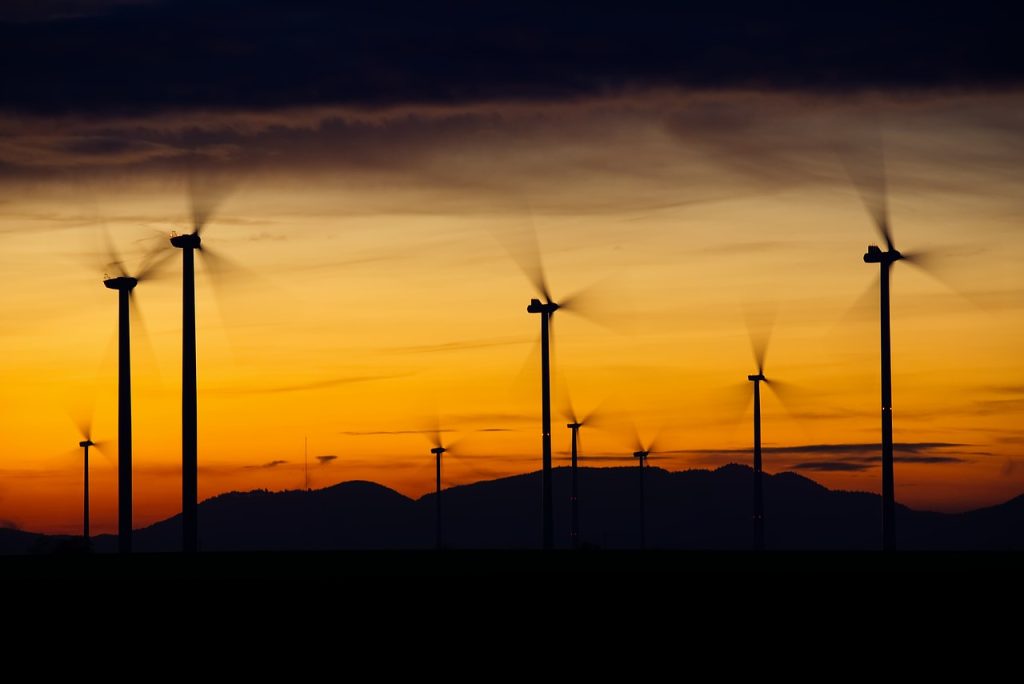
Challenges in Implementing Reduced Water Usage
While reducing water usage in power generation is essential, several challenges hinder the widespread adoption of water conservation measures in the industry.
Technological Limitations
One of the primary challenges in implementing reduced water usage is the availability of suitable technologies. Many traditional power plants were not designed with water efficiency in mind, making it difficult to retrofit existing facilities to reduce water consumption. Developing and implementing new technologies that optimize water usage without compromising the efficiency and reliability of power generation plants is crucial to overcoming this challenge.
Infrastructure Requirements
Implementing water conservation measures often requires significant infrastructure investments. Retrofitting power plants with water-efficient technologies or transitioning to alternative renewable energy sources may require substantial funding and logistical considerations. Developing the necessary infrastructure to support a water-efficient power generation system requires coordination and collaboration among various stakeholders, including power generation companies, government authorities, and financial institutions.
Economic Considerations
The economic viability of adopting reduced water usage in power generation is another challenge. Traditional power generation methods have well-established economies of scale and cost structures. Transitioning to alternative sources with reduced water usage may initially incur higher capital costs, and the economic feasibility of such projects is a critical factor to consider. Implementing financial incentives and supportive policies can help facilitate the economic transition and encourage power generation companies to invest in water-efficient technologies.
Case Studies and Success Stories
Several regions and countries have recognized the importance of reduced water usage in power generation and have implemented successful initiatives to promote sustainable energy practices.
California’s Renewable Energy Initiatives
California has been at the forefront of renewable energy adoption, focusing on reducing water usage in power generation. The state has introduced policies and incentives to promote solar power, wind power, and energy efficiency measures in both residential and commercial sectors. By reducing its reliance on traditional power generation methods, California has not only decreased water consumption but also significantly contributed to its long-term sustainability goals.
European Union’s Transition to Sustainable Power Generation
The European Union (EU) has made considerable strides in transitioning to sustainable power generation with reduced water usage. The EU’s Renewable Energy Directive sets binding renewable energy targets for member states, encouraging the deployment of renewable technologies that require minimal water. This transition has not only minimized water consumption but also promoted the development of innovative solutions and contributed to the EU’s commitment to mitigating climate change.
India’s Efforts in Solar Power Adoption
India, a country facing water scarcity challenges, has recognized the potential of solar power in reducing water consumption in power generation. The government has implemented various policies and financial incentives to accelerate solar power adoption and promote energy efficiency. By leveraging its abundant solar resources, India aims to not only reduce its reliance on traditional power generation but also conserve water resources for other essential needs.

Innovations and Technologies Promoting Water Conservation
The power generation industry is continuously exploring innovative technologies to reduce water usage and improve overall efficiency in energy production.
Water-free Cooling Systems
Water-free cooling systems, such as air-cooled condensers and dry-cooling towers, offer a viable alternative to traditional water-intensive cooling methods. These systems utilize air or alternative cooling mediums instead of water, thereby significantly reducing water consumption in power plants. By adopting water-free cooling technologies, power generation facilities can effectively reduce their reliance on water resources and mitigate environmental impacts associated with water usage.
Hybrid Power Generation
Hybrid power generation systems combine different energy sources to maximize efficiency and minimize environmental impact. By integrating renewable energy sources that require minimal water usage with traditional power plants, hybrid systems can optimize water consumption. This approach allows power generation facilities to transition gradually while maintaining the reliability and stability of the power grid.
Advanced Water Treatment Methods
Advancements in water treatment technologies can also contribute to water conservation in power generation. Innovative methods such as membrane filtration, desalination, and water recycling can minimize the fresh water demand for power plant operations. By efficiently treating and reusing water, power generation facilities can minimize their consumption of freshwater resources and reduce their environmental footprint.
Government Regulations and Policies
Government regulations and policies play a crucial role in promoting reduced water usage in power generation and incentivizing sustainable practices.
Water Usage Standards
Regulatory standards can establish limits and guidelines for water usage in power generation, encouraging power plants to adopt water-saving practices and technologies. By setting stringent standards, governments can drive the adoption of water-efficient technologies and ensure that power generation facilities prioritize responsible water management.
Incentives for Water-efficient Power Generation
Financial incentives, subsidies, and tax credits can encourage power generation companies to invest in water-efficient technologies and renewable energy sources. By providing economic support, governments can motivate the industry to transition to sustainable power generation methods, reducing water consumption and promoting a more environmentally friendly energy system.
International Agreements on Water Conservation
International agreements and frameworks between countries can facilitate collaboration and knowledge sharing on water conservation practices in power generation. These agreements promote the exchange of best practices, technologies, and policies, assisting countries in implementing effective strategies to reduce water usage.
Collaboration between Power Generation and Water Management Industries
Collaboration between power generation and water management industries is crucial for addressing shared resource challenges and developing integrated solutions.
Shared Resource Challenges
Both power generation and water management industries face common challenges related to resource availability, environmental impact, and sustainability. By fostering collaboration and dialogue, these industries can jointly address these challenges and develop innovative solutions to promote efficient and responsible resource management.
Integrated Planning and Development
Integrating water management considerations into power generation planning and development processes is essential for reducing water usage. By involving water management experts, policymakers, and stakeholders from the design phase, power generation projects can incorporate water-efficient technologies and strategies, ensuring long-term sustainability and minimizing environmental impacts.
Research and Innovation Partnerships
Research and innovation partnerships between power generation and water management industries can drive the development of new technologies and solutions that promote reduced water usage. By pooling expertise and resources, these partnerships can accelerate the adoption of water-efficient practices and foster the advancement of sustainable power generation methods.
Future Outlook and Potential for Reduced Water Usage
The future of power generation lies in transitioning towards more sustainable practices, including reduced water usage. As renewable energy technologies continue to advance and global water scarcity concerns intensify, the need for water-efficient power generation becomes increasingly apparent.
Advancements in Renewable Energy Technologies
Renewable energy technologies, such as solar, wind, geothermal, and biomass power, are constantly evolving, becoming more efficient, and requiring less water for their operations. Continued research and development efforts in these fields promise significant advancements in water-efficient power generation, laying the foundation for a sustainable and resilient energy future.
Increasing Global Water Scarcity
The global demand for water continues to rise, and many regions face increasing challenges related to water scarcity and availability. With limited freshwater resources, it is crucial for power generation to embrace reduced water usage to ensure the long-term sustainability of energy production. By minimizing water consumption, power plants can contribute to water conservation efforts and alleviate pressures on already stressed water sources.
Transition towards Sustainable Practices
The urgent need to mitigate climate change and address water scarcity concerns calls for a transition towards sustainable power generation practices. Reduced water usage is an integral part of this transition, as it promotes responsible resource management and minimizes the environmental impact of energy production. By embracing water-efficient technologies, policies, and collaborative approaches, the power generation industry can pave the way for a sustainable energy future that safeguards both energy and water resources.
In conclusion, reducing water usage in power generation is crucial for promoting sustainability and mitigating the environmental impact of energy production. By transitioning towards renewable energy sources with reduced water requirements, implementing innovative technologies, and fostering collaboration between the power generation and water management industries, we can ensure the availability and accessibility of water resources for future generations. Embracing reduced water usage in power generation is not only a necessary step towards sustainability but also a proactive approach to addressing global water scarcity challenges.

